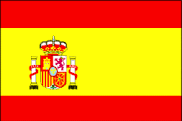
Nina V. Fedoroff Ph.D.
National Medal of Science - Biological Sciences 2006
Plant Molecular Biologist. Geneticist. First to clone and characterize maize transposons. Founding director, Huck Institutes of the Life Sciences. Interests: Education, Public Policy.
"It's as much wanting to succeed as it is to using your brains. I've seen very bright people fall out of the system".
Biography of Nina V. Fedoroff, US Department of State
Generously contributed by Nina V. Fedoroff
Special Adviser, Science and Technology
Term of Appointment: 08/06/2007 to 2010
U.S. Secretary of State Condoleezza Rice has named Dr. Nina V. Fedoroff to be her new Science and Technology Adviser. Dr. Fedoroff is the Willaman Professor of Life Sciences and Evan Pugh Professor in the Biology Department and the Huck Institutes of the Life Sciences, Pennsylvania State University.
Dr. Fedoroff is a leading geneticist and molecular biologist who has contributed to the development of modern techniques used to study and modify plants. She received her Ph.D. in molecular biology from the Rockefeller University in 1972. In 1978, she became a staff member at the Carnegie Institution of Washington and a faculty member in the Biology Department at Johns Hopkins University. In 1995, Dr. Fedoroff joined the faculty of the Pennsylvania State University, where she served as the founding director of the Huck Institutes of the Life Sciences.
Dr. Fedoroff has done fundamental research in the molecular biology of plant genes and transposons, as well on the mechanisms plants use to adapt to stressful environments. Her book, Mendel in the Kitchen: A Scientist's View of Genetically Modified Foods, published in 2004 by the Joseph Henry Press of the National Academy of Science, examines the scientific and societal issues surrounding the introduction of genetically modified crops.
Dr. Fedoroff is a member of the National Academy of Sciences, the American Academy of Arts and Sciences, and the European Academy of Sciences. She has served on the National Science Board of the National Science Foundation. Dr. Fedoroff is a 2006 National Medal of Science laureate.
Nina V. Fedoroff did her undergraduate work at Syracuse University, graduating summa cum laude with a dual major in biology and chemistry. She attended the Rockefeller University, where she earned her Ph.D. in molecular biology in 1972. Both her undergraduate research at Syracuse University and her graduate research on RNA bacteriophage at The Rockefeller University were supported by grants and fellowships from the National Science Foundation. Following graduation from The Rockefeller University, she joined the faculty at the University of California, Los Angeles (UCLA), and carried out research on nuclear RNA.
In 1974 Fedoroff received fellowships from the Damon Runyon-Walter Winchell Cancer Research Fund and the National Institutes of Health (NIH) for postdoctoral work, first at UCLA and then in the Department of Embryology of the Carnegie Institution of Washington in Baltimore. Working in the laboratory of Donald Brown, Fedoroff pioneered in DNA sequencing, determining the nucleotide sequence of the first complete gene. In 1978, Fedoroff became a staff member at the Carnegie Institution of Washington and a faculty member in the Biology Department at Johns Hopkins University. Her research focus changed to the isolation and molecular characterization of maize transposable elements. The isolation of the maize transposons, discovered genetically by Barbara McClintock in the 1940s, was achieved in the early 1980s. In subsequent years, Fedoroff's lab showed that the maize transposons were active in a variety of other plants, developed transposon tagging systems, and studied the epigenetic regulation of transposon activity.
In 1995 Fedoroff joined the faculty of the Pennsylvania State University as Willaman Professor of Life Sciences. From 1995 to 2002, she served as the Director of the Biotechnology Institute and she organized and served as the first Director of the Life Sciences Consortium (now the Huck Institutes of the Life Sciences), a seven-college organization devoted to the promotion of multidisciplinary research and teaching in the life sciences. In 2002, Fedoroff was named an Evan Pugh Professor of the Pennsylvania State University and in 2003, she became a member of the External Faculty of the Santa Fe Institute. Fedoroff's current work is directed at understanding the genetic organization and molecular dynamics of plant stress and hormone responses and makes use of DNA microarray expression profiling, reverse genetics, and theoretical approaches to the analysis of large data sets. Fedoroff has published two books and numerous papers in scientific journals.
Fedoroff has served on the editorial boards of the Proceedings of the National Academy of Sciences, Science, Gene, Plant Journal and Perspectives in Biology and Medicine and currently chairs the NAS Council's Publications Committee. She served on the board of the International Science Foundation and the International Scientific Advisory Board of the Engelhardt Institute of Molecular Biology in Moscow. She has been a member of the Council of the National Academy of Sciences, the Board of Directors of the Genetics Society of America, the American Association for the Advancement of Science, the Board of Trustees of BIOSIS and the National Science Board, which oversees the National Science Foundation. She is currently a member of the Science Steering Committee of the Santa Fe Institute and the Board of Directors of the Sigma-Aldrich Chemical Company.
Fedoroff has received several awards and honors, including an NIH Merit Award, a 10-year research grant that supported her work from 1989 to 1999. She also received the University of Chicago's Howard Taylor Ricketts Award in 1990, the New York Academy of Sciences' Outstanding Contemporary Woman Scientist award in 1992, and the Sigma Xi's McGovern Science and Society Medal in 1997, and Syracuse University's Arents Pioneer Medal in 2003. She is a member the American Academy of Arts and Sciences, the European Academy of Sciences, the American Academy of Microbiology and the National Academy of Sciences.
Released on July 18, 2007
Discover Your Abilities and Aspirations!
 $10 $25 $50 $100 Other
$10 $25 $50 $100 Other
Tax Exempt 501(c)3 Non-Profit Organization
Any Currency
“…the peace that is found in libraries and laboratories…” - Louis Pasteur
Copyright © 2023 Ganga Library Inc. All Rights reserved.;

Photo: Courtesy Nina Fedoroff. Credit: Douglas Mills, New York Times
Name: Nina V. Fedoroff
Birth: 1942
Title: Evan Pugh Professor of Biology
Affiliation: Pennsylvania State University
Citation:: "For her pioneering work on plant molecular biology, and for her being the first to clone and characterize maize transposons. She has contributed to education and public policy pertaining to recombinant DNA and genetic modification of plants." Awarded by President George W. Bush in a White House ceremony on July 27, 2007.
Biography
Vita
Publications
Books
Images
External Resources/videos













